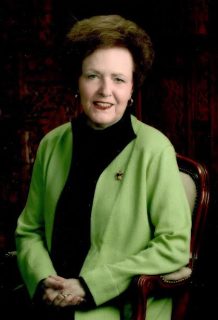Book review: ‘Morningside Heights’
Published 12:00 am Sunday, August 1, 2021

- BOOK REVIEW
“Morningside Heights” by Joshua Henkin. New York: Pantheon Books, 2021. 293 pages, $26.95 (hardback).
Morningside Heights is the neighborhood in the Upper West Side of New York City between 110th and 125th streets, the area that surrounds Columbia University. One of the main characters in the novel with that name is Spence Robin, the youngest tenured member of Columbia’s English Department, whose main research area is focused on Shakespeare. Spence had grown up in the city, was No. 1 in his school class at Stuyvesant and in college at Cornell and had earned his doctorate at Princeton in four years.
One of his graduate students, Pru Steiner, had grown up in Columbus, Ohio, but her family also had roots in New York City. Even though Spence is divorced, professor and student cross a line when they become involved. Spence takes Pru to visit his sister Enid, who had been brain-damaged from an accident with a drunken driver and needed constant care. Next he revealed that he had a son, Arlo, and an ex-wife, Linda. Pru was startled by this information, but the couple soon married and Pru became pregnant and gave birth to a daughter, Sarah.
Both families had been raised with strong Jewish traditions, especially in cooking, but they were certainly not devout. Spence receives several prestigious grants and a big advance to write a “popular” book on Shakespeare. When Spence keeps asking for delays in producing the book, it begins to dawn on Pru that something is wrong. Spence had been an outstanding teacher beloved by his students and when his graduate assistant reveals to Pru that Spence’s student evaluations had declined significantly, she decides to take Spence to a doctor and after several tests Alzheimer’s appears to be confirmed.
Much of the story is told in flashbacks. Linda was a college drop-out who lived a “hippie” existence and moved Arlo from place to place and even joined a commune. She was oblivious to the fact that Arlo couldn’t read, but eventually allowed Arlo to move in with Spence’s family. Father and son did not get along and when Arlo was diagnosed with dyslexia Spence reacted poorly. Arlo liked living in New York but did not get along with Sarah or Spence and Pru and eventually moved back with his mother. A lot of the action focuses on the debilitating conditions of Spence’s disease and Pru’s efforts to handle him. She quits her job, returns Spence’s advance to the publisher and hires help for both day and night. Spence is soon forced to retire and continues to decline physically and mentally. By this time Sarah has finished college and is in medical school. The family brings Arlo in to interact with his father when he is able to. Pru also becomes involved with Walter, who is caring for his ex-wife, but wants to make his relationship with Pru more permanent. The novel raises the horrors associated with Alzheimer’s very effectively and readers will sympathize with the characters who have to deal with the disease on a daily basis, with only scant hope for improvement.
Author Joshua Henkin directs the master’s of fine arts program in fiction writing at Brooklyn College.
He has published three other novels, including “Swimming Across the Hudson,” which all received recognition. In “Morningside Heights,” Henkin displays an intimate knowledge of the geography and topography of the Upper West Side in Manhattan and even includes the Hungarian pastry shop so popular with Columbia students. I would like to have seen more interaction between Spence and his students with the literary content of Shakespeare’s works. There are a few references to individual plays when Pru is a graduate student and to titles of Spence’s publications, but no discussion of how this outstanding professor communicated the texts to his students.
Despite the depressing aspects of Spence’s disease, the book reads well and I recommend “Morningside Heights” as a novel that is well written and well worth the time readers invest in it.
– Reviewed by Richard Weigel, Western Kentucky University History Department.






